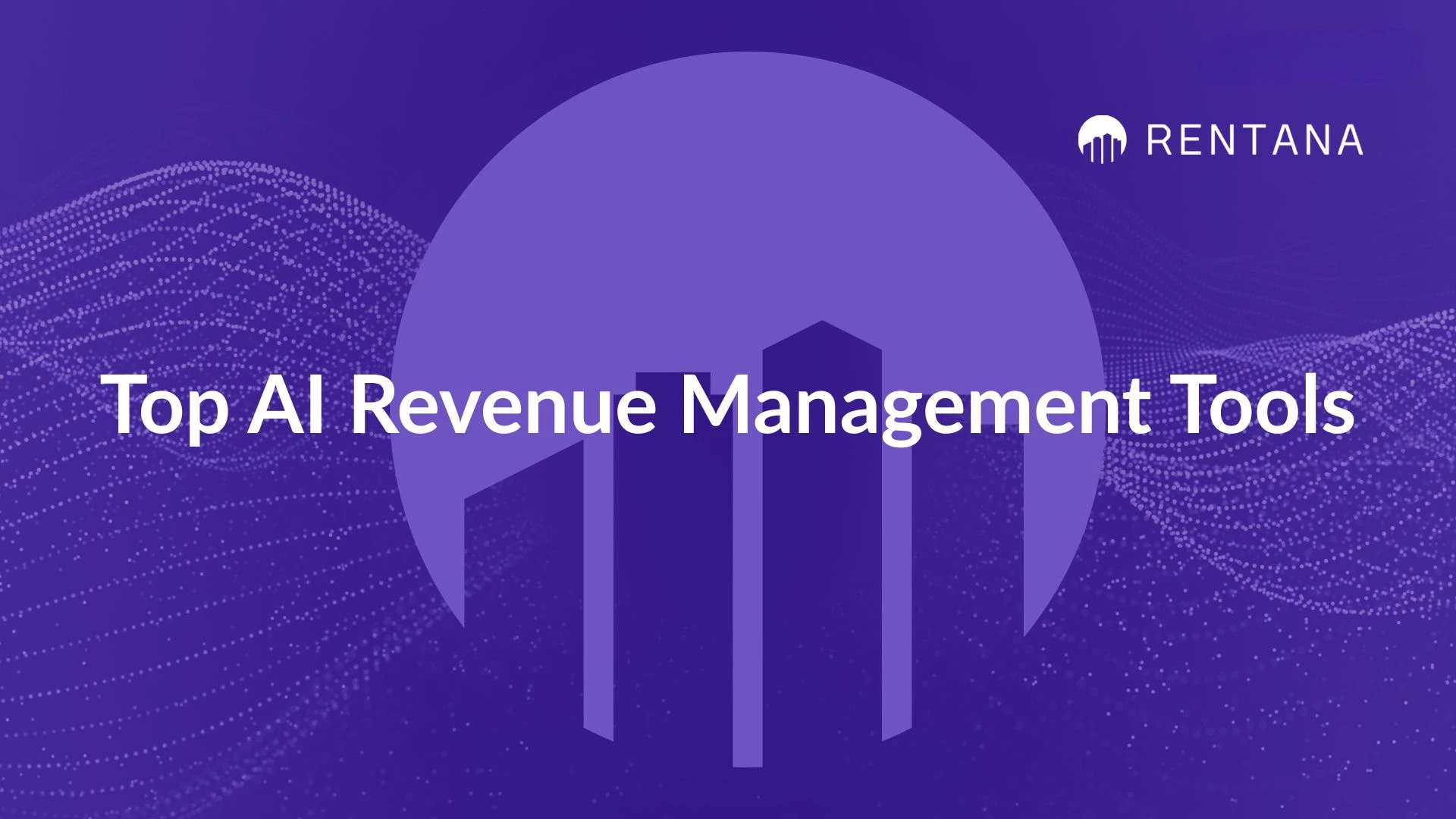




Not too long ago, managing revenue meant juggling spreadsheets, making educated guesses, and reacting to changes after they happened. Companies tracked sales manually, adjusted prices slowly, and often missed key opportunities simply because they didn’t have the data in time.
Today, artificial intelligence has completely changed that picture. AI-powered revenue management tools can now analyze millions of data points in seconds, spotting patterns that humans would never catch. They predict demand before it happens, optimize pricing in real time, and help businesses grow revenue.
Businesses utilizing AI can achieve up to a 10–15% annual revenue increase through pricing optimization and demand forecasting. From hotels and airlines to multifamily real estate and retail, AI revenue management is helping organizations make smarter, faster, and more profitable decisions. What used to take hours of manual work can now be done automatically, backed by data and precision.
As more industries adopt these tools, revenue management is going beyond reacting to the market, and extending to staying one step ahead of it.
Related: 9 Best AI Tools in Commercial Real Estate

Here are four key features to look for in an AI revenue management tool, especially tuned for the real estate world.

When it comes to real estate, few tools understand the needs of multifamily owners and operators like Rentana. It was built to help property managers, asset managers, and investors make better, data-backed decisions about pricing, occupancy, and performance.
Rentana combines public market data, portfolio insights, and predictive analytics into one easy-to-use platform. It gives users a full view of how their properties are performing in real time, showing where occupancy can improve, and how market conditions are shifting.
Its AI forecasting feature studies rent trends, seasonal patterns, and local competition to predict how pricing decisions could affect revenue weeks or months ahead. Owners can test different pricing scenarios, track performance down to the unit level, and uncover new revenue opportunities before the market moves.
Rentana is also known for its intuitive reporting. Instead of sorting through spreadsheets or scattered systems, users get a clean dashboard. For multifamily teams that want to move beyond guesswork and into true revenue intelligence, Rentana delivers clarity, speed, and insight that help maximize returns and scale portfolios efficiently.
Recommended: What is a Good Cap Rate for a Multifamily Property?
Pace Revenue is an AI revenue management platform that helps property operators and hospitality businesses automate pricing and forecasting. It continuously analyzes market data, demand patterns, and booking behavior to recommend the best possible prices at any given time.
For real estate and multifamily investors, Pace Revenue offers tools to monitor performance across multiple assets and optimize rent strategies based on real-time insights. It uses predictive modeling to help teams make quicker, more accurate pricing decisions and increase occupancy without sacrificing profitability.
Pace Revenue is best suited for property owners and asset managers looking to simplify revenue optimization through automation and data-driven forecasting.
Clari is another AI revenue management and forecasting platform built for enterprise teams. It helps organizations manage their entire revenue process by unifying data from sales, finance, and customer operations into one system.
For large real estate or property management firms, Clari’s value lies in its ability to forecast revenue trends, identify performance gaps, and automate reporting. The platform uses predictive analytics to estimate income potential across portfolios and highlight where attention is needed to maintain or grow revenue.
Clari is best for organizations managing complex pipelines or multiple income sources that need a unified, data-driven view of their business health. It turns fragmented data into clear insights that support smarter and faster decision-making.
Revenue Grid is an AI-based platform that helps businesses improve their revenue processes through data automation and guided insights. It connects sales, operations, and financial data to show how revenue is generated, tracked, and retained across an organization.
While it is most popular in enterprise and service industries, its data visibility tools can also support large real estate teams managing complex leasing pipelines. Revenue Grid helps users spot gaps in revenue flow, monitor performance metrics, and forecast results more accurately using AI-driven recommendations.
For companies focused on improving coordination between sales, finance, and operations, Revenue Grid offers a reliable system to make revenue tracking and planning easier and more transparent.
Related: 9 Best AI Tools for Real Estate Investors
BoostUp AI is a unified revenue management and forecasting platform that gives businesses a complete view of their revenue health. It combines data from multiple systems to track performance, identify risks, and highlight opportunities for growth.
BoostUp uses machine learning to analyze revenue trends and predict outcomes based on real-time activity. For property investment or real estate companies, it can help monitor deal pipelines, measure income potential, and ensure that performance targets stay on track.
Its visual dashboards make it easy to see where revenue is growing, where it is slowing, and what actions might improve results. BoostUp AI is best for teams that want a simple, AI-driven way to forecast and manage revenue with more precision.
Revenue.io helps companies manage and grow their revenue through automation, analytics, and real-time insights. It connects data from calls, CRM systems, and performance reports to help teams understand what drives revenue growth and where they can improve.
While it is most popular in sales-driven industries, its forecasting and analytics features can also support real estate firms that manage leasing pipelines or client relationships. By tracking communication patterns and performance trends, Revenue.io helps teams identify opportunities to improve conversion rates and efficiency.
Its easy-to-read dashboards make data more actionable, helping businesses make informed decisions that drive consistent revenue growth.
Nektar AI helps companies connect and analyze revenue data scattered across multiple tools. It gathers insights from emails, CRM systems, and activity data to give a full picture of how revenue is being generated and where it can be improved.
While it is primarily designed for sales and customer-focused organizations, its automation and forecasting tools can support real estate teams that need to track leads, performance trends, and deal progress across large portfolios.
Nektar AI simplifies revenue management by turning scattered information into one clear, centralized view, helping businesses make faster and more informed decisions about their growth strategy.
Read Also: The Best AI Tool for Rental Market Analysis by Zip Code
People.ai is a revenue intelligence platform that uses AI to capture and analyze data from sales, marketing, and customer interactions. It helps organizations understand where revenue is coming from and where it’s being lost. By automatically collecting activity data from emails, calendars, and CRMs, People.ai removes manual reporting and reveals hidden performance patterns.
For large real estate or investment firms, this level of automation can help teams better manage client pipelines, track investor relationships, and forecast outcomes with more confidence. The platform’s analytics also make it easier for leaders to identify which strategies are driving the highest returns.
People.ai is best for teams that want a clear, automated view of their revenue operations and prefer actionable insights over manual data collection.
Aviso AI is an intelligent revenue management and forecasting platform built to help companies improve accuracy and predictability in their revenue processes. It uses machine learning to combine data from multiple sources, offering forecasts, deal recommendations, and detailed scenario modeling.
In the context of real estate or asset management, Aviso AI can help decision-makers see how current deals, market conditions, or interest rate changes could affect revenue over time. Its scenario planning tools allow teams to test “what-if” situations and prepare more resilient strategies.

Choosing the right AI revenue management tool depends on your goals, the type of business you run, and how you plan to use the data. Each platform brings something different to the table, so it’s important to match the tool to your specific needs.
If you’re in real estate, platforms like Rentana are designed to track rent trends, forecast occupancy, and give you a complete view of portfolio performance. For hospitality or short-term rentals, tools such as Pace Revenue or Atomize are great options for dynamic pricing and demand forecasting. Larger organizations that rely on complex revenue pipelines might prefer enterprise tools like Clari or BoostUp AI for deeper analytics and forecasting accuracy.
When evaluating options, keep a few key factors in mind:
A good rule of thumb is to start with a platform that meets your most immediate needs, then expand as your data strategy becomes more advanced.
AI is changing how businesses think about revenue. What used to rely on manual tracking and monthly reports is now becoming a real-time, predictive process. Across industries, companies are using AI not only to understand what is happening but to anticipate what comes next.
In real estate, this shift is especially powerful. Platforms like Rentana are showing how predictive analytics and machine learning can help owners and investors stay ahead of market changes. By analyzing rent growth, occupancy, and performance data instantly, AI helps teams make faster and more confident decisions about pricing, investment, and growth strategies.
Looking ahead, AI revenue management will continue to move toward automation and personalization. Instead of reacting to the market, businesses will use data-driven intelligence to shape it. The tools of the future will adapt to changing conditions automatically, helping teams save time, reduce risk, and unlock new opportunities for profit.
AI is no longer a luxury. It is becoming a standard part of how modern businesses grow, compete, and succeed.
AI revenue management uses artificial intelligence to analyze data, predict demand, and optimize pricing strategies. It helps businesses make data-driven decisions to maximize revenue, reduce manual work, and respond quickly to market changes.
The 4 P’s of revenue management are Product, Price, Place, and Promotion. AI enhances each element by forecasting demand, adjusting pricing dynamically, optimizing distribution channels, and targeting promotions to maximize profitability.
AI makes revenue by improving efficiency, predicting customer behavior, and automating decision-making. It identifies the best pricing strategies, upselling opportunities, and market segments that generate higher returns for businesses.
AI is transforming revenue management by replacing manual forecasting with real-time predictive analytics. It enables smarter pricing, personalized customer offers, and faster decision-making, helping businesses stay competitive and increase overall profitability.